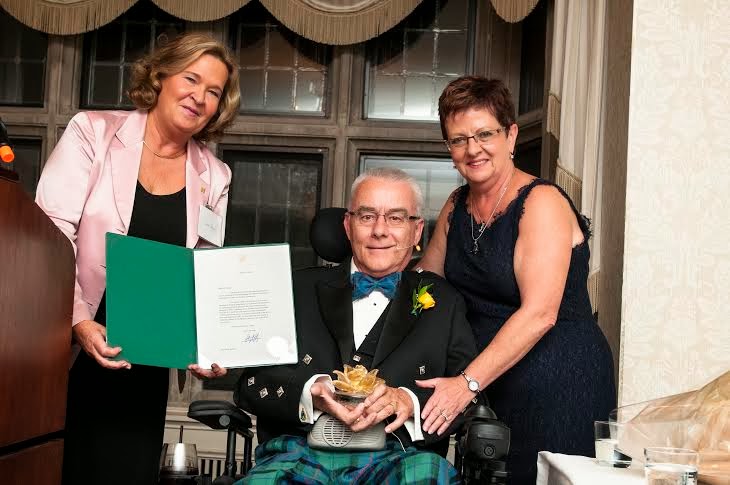The Power of
the Name
There is
something special about our name. It’s probably one of the first words that we
readily respond to – and that continues for all our lives. Though we are not
totally identified with our name (we are much, much more than that), our name
is a powerful entity that sets us apart from those around us. It is the way in
which we are singled out, whether we are present or absent from the
conversation.
When we give
our name to others, it speaks of a change in the relationship – from a
contract, to a deep friendship. If we withhold our name, there is a usually
compelling reason why we choose that action – a refusal to enter into some kind
of partnership, even at the basic level.
Parents-to-be
often spend hours choosing a name for their new addition, whether the criteria
include family tradition (we named her after Aunt ____), the sound of the name,
or its meaning. There is usually a purpose for the final choice. We surround
the giving of the name with ritual – from simple naming ceremonies, to more
elaborate christening or baptismal services.
What’s in a
name?
Since those
of us who live in the west come mostly from a Judeo-Christian background, it
may be helpful to take a brief excursion into these vehicles through which this
understanding of names was channeled to us today. The ideas certainly did not
originate with these traditions.
 Traditionally,
when someone was given a name, it denoted an expectation, a destiny upon which
the new human being would embark upon. In Biblical times, a change of name
heralded a change of destiny. Thus Abram (High Father) is renamed Abraham (the
Father of a Multitude); Simon (He has Heard) becomes Peter (the Stone, or the
Rock). The change of name resulted in a new way of being seen, a new
perspective unfolding.
Traditionally,
when someone was given a name, it denoted an expectation, a destiny upon which
the new human being would embark upon. In Biblical times, a change of name
heralded a change of destiny. Thus Abram (High Father) is renamed Abraham (the
Father of a Multitude); Simon (He has Heard) becomes Peter (the Stone, or the
Rock). The change of name resulted in a new way of being seen, a new
perspective unfolding.
The writers
of the Old Testament understood that naming something gave one power over that
which is named. Hence, in the second Creation Legend all the creatures were
brought before Adam (Man) so that he could name them. He even gets to name Eve
(Mother of All the Living) – which probably accounts for the subordination of
women to men throughout history. (This is still quoted today by some religious
groups which believe that men should be the ‘head’ of the family).
For this
reason, the Hebrews would not give a name to their God because you could not
have power over the deity. In the story of the burning bush, Moses is given the
understanding of the divine as ‘I AM THAT I AM’ (JHVH -> YHWH -> Yahweh).
This is a generic name – not a personal name. After all, they
understood that the Divine Name was to be hidden from humanity.
This idea is
picked up in the New Testament in the stories of the casting out of demons.
When Jesus of Nazareth confronts the demons he demands their name. Once he has
their name, they subject themselves to his authority, and are dealt with
accordingly. Later, the disciples of the Nazarene, also cast out demons.
However, they do not do this in their own name, but ‘in the name of Jesus’, who
empowered them to do so, in his name. The link between ‘name’ and ‘authority’
is very clear.
Moving away
from these religious traditions, how does the power of naming things affect us
today?
We all
remember the little ditty, ‘Sticks and Stones may break my bones, but names
will never hurt me’. We were told to recite this to ourselves and others as a
buffer to the emotional pain that was being inflicted upon us.

Of course, it didn’t work. Too many have experienced that, although physical injuries may heal, names that we have been called in the past can continue to haunt us throughout our lives. When little ones tell us that someone is calling them names, we’d better take heed and address the issue as soon as possible.
We often go
about our day with cares, concerns, and worries that occupy our minds –
sometimes constantly. We fret over issues, incidents in the past, people with
whom we interact, what people think of us, what decision we should make, how to
put something right etc. While these things remain in our heads, it’s as if
they have a power over us. Sometimes, this leads to lack of sleep, stress, or
even (in severe circumstances) clinical depression.
When we find
that ‘trusted someone’ to talk to about our concerns, we often find that we
begin to take control over that which has bothered us for so long. Our problems
don’t seem as ‘big’ as they were before we voiced them. Until we speak them,
they continue to hold power over us. Once we ‘name’ them, we begin to have
power over them, to take ‘authority’ over them.
Maybe the
ancient biblical writers, in their wisdom, understood this human truth and they
expressed it through the tools of religious imagery that they had at hand.
We may or
may not subscribe to those religious traditions today; however, we can
certainly embrace the deep insights that have been preserved. It may help us to
live life more peacefully and in harmonious authority within ourselves. Maybe
it’s time to reclaim the truth of who we really are, which is so much more than
our name.
----------------------------------------
Happy, Fit, & Free!
----------------------------------------
Happy, Fit, & Free!









